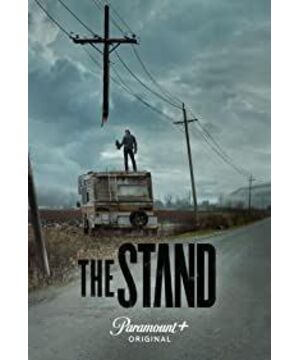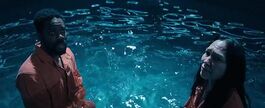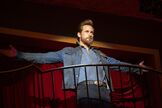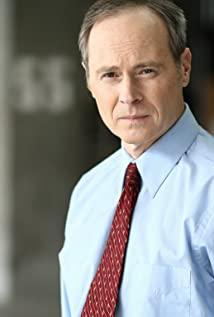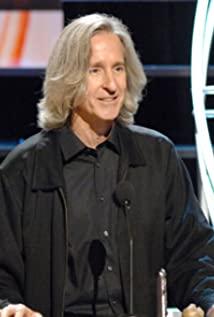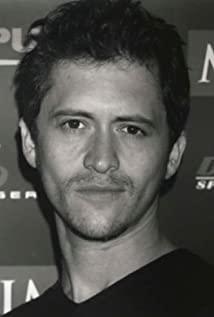Write on the front: book fan warning! Book fan alert! Book fan alert! My end is approaching a die-hard book fan! All criticism and praise in this comment are from the perspective of "whether the excellent original work is well restored"! If you are reading this review and you are not a fan of the book and like this version of the adaptation, you can pretend that this review does not exist! grateful! goodbye! Book fans who like or dislike this version of the adaptation are also welcome to discuss and complain together!
--
Let’s start with the mini-series The Stand adapted from the 1994 edition. It’s really good to watch if you watch it, and it’s really good. It’s a favorite of many book fans. What are you still hesitating about? Go watch it. (The po master only has an English word plug-in source. If you can accept this source, if you need it, you can comment or send a direct private message, and you will definitely reply when you have time)
--
In short, I was disappointed in the first episode, and it is estimated that it will continue to be disappointed, because from the beginning, this unintelligible and logical time line has determined that it will be the same chaos and confusion in the future... Weekly meeting Update, of course, I hope that it will get better and better unexpectedly. After all, it is not one of Stephen King's greatest works. I hope that I can stop the update later...
E01:
- The timeline is completely illogical and chaotic. What's wrong with simply filming a hot and exciting opening of a virus leak, and honestly put the main characters (Stu Redman, who is in contact with patient zero, Frannie Goldsmith, a sensitive and down-to-earth female college student in the town, and a gas bag otaku) Harold Lauder, the cowardly singer Larry Underwood, and the upright and brave deaf-mute boy Nick Andros, at least these are introduced first, and then what's wrong with moving forward in multiple lines? Why shoot a pre-breakout and post-Boulder? This operation is completely illogical? Why keep focusing on a corner character, Harold Lauder, all the time? I admit that the complexity of his character is a big highlight in the middle of the story, but in general, the importance of his character is not worth the director to subvert the logic of the entire story line for him, right? One minute in the Ogunquit seaside town resort, the next minute directly crosses to Boulder's Free Zone in the second half of the book. The whole change takes several episodes to unfold, and the result is a random "5 months ago" on the screen. Is the time entry too jumpy and lazy? The first episode should have started with patient zero and his crossover Stu Redman, because that's where the virus first started. And opposite heroine Frannie Goldsmith, so that's the right focus! This time-line confusion problem has caused almost all the slots outside! King's original work is intertwined and exciting, and if you change it to mess with a hammer in the east and a stick in the west, the effect will definitely be greatly reduced!
(Supplement: I have seen in the short comment that the audience could not understand the plot and logic due to the confusion of the timeline... The part of the church to clean up the corpse has been 5 months after the outbreak of the virus, and everyone who survived gathered at the Boulder Free in Colorado. What happened in the zone, all the people who were supposed to be infected at that time were all dead, and those who survived to the Boulder Free Zone were the children of heaven, and they would never be contagious, so they would never get sick if they didn’t wear a mask. Wearing masks there is mainly because the rotten corpse smells bad, not because of fear of infection! You see, if the timeline is clear, the audience knows that this scene is 5 months later, and these people are the children of heaven who will not be contagious. , won't this confusion arise? …)
- Timeline issues caused character logic and character development to fail. We all know that Stephen King is good at creating characters that are real and simple, empathetic, and constantly changing characters that touch the hearts of readers! The restoration of the character is the most important point in the adaptation of Stephen King's original work! The excellent adaptations in recent years, such as the new version of IT and the drama version of the Mr. Mercedes series, are all down-to-earth and perfect to restore the characters to be loved by the audience! The Stand is Stephen King's greatest work, in which there are some of the best-written characters in his grandfather's writing career. The reason why it is well written is because the characters have a long and far-reaching arc in time and space, and they are reflected in small details. Changes, the decisions made by the characters at the turning point, as pawns in God's grand chess game, and the impact and impact of every move on the whole world situation and the fate of mankind are all very, very important. The first episode mainly talks about Harold. He went from a simple and eccentric unrequited otaku to a stiff face, unable to squeeze out a smile. Every day, he dreams of seeing the call of the man in black. There is a reason for this blackening. In the process, he experienced a lot of things. I know the intention of the director, to change this linear time span to a non-linear narrative, is to make the audience wonder why this change occurs? Then replay what happened in the middle. But this concussion-like convulsion change is too drastic, and the audience has no familiarity and intimacy with the character, which will be confusing. I believe that what makes the audience more empathetic is to follow him through what he is going through, sitting on the back seat of his motorcycle, being driven to the edge of a cliff, to himself in linear time with him day by day In the dead end of the horns that can't be seen, understand his feelings, pain and thoughts, and the outbreak and pain at this time are more real and easier for the audience to accept.
- Character failure not caused by timeline. Stu Redman, as the big male protagonist, the whole book is to sublimate the human strength and brilliance of this ordinary person who is a model of ordinary rural people. He is a rebel, an ordinary hero like a western cowboy, and finally because the CDC people want to silence He just escaped. In this adaptation, what does it mean to sit in the CDC and chat with officials and make friends with the big leader? Speaking of the big leader, it is also a too monotonous adaptation. The most impressive thing in the original book is that Starky stared at the cook who died in the soup in the cafeteria on the surveillance screen. From the outbreak of the virus, he stared at the scene where he finally went crazy for several days. . The 1994 edition also showed this crazy picture in great detail, because I think it is really a very basic and impactful tragedy. Captain Trips not only brings painful physical illnesses to people, but this apocalyptic scene gives people The psychological trauma is also, as the person in charge of the virus project, the leader Starky did not die of illness, he was driven crazy by that picture and committed suicide, and is the most important representative of the tragic consequences of the virus outbreak caused by psychological trauma. The new version of the adaptation simply used his mouth to recite poetry, to make some unintelligible pretending to be a grand world view, and later made him cough directly to imply that he was also ill. Finally, why not say Frannie is pregnant... isn't that the first thing the characters do when they come out? At the beginning, I told her boyfriend about this and broke up, and told her dad about it. Did her dad say help her to plead with her mother? This child in the stomach is also a foreshadowing of the last scene? Why don't you say it? In the 1970s, 1980s and 1990s, female college students could conceive out of wedlock, but not now?
- I don't understand when I first started promoting it, didn't it say that this is a drama that is in line with the current era, and why the vivid description of the terrible and desperate pandemic in the original book was deleted? A few coughs, a few days of radio shows, and a monotonous and obscure performance, I really can't tell that this is a super virus with a fatality rate of over 99%. In addition, the terrifying chapter 26 in the original book is not mentioned at all (although it is probably too sensitive to shoot? But the 1994 version still chose one or two representative clips from the 26 chapters to shoot and Great shot, and Kathy Bates' cameo is terrific). But if it's because the time is sensitive, then forget it. If the drama is worried that it will cause unnecessary anxiety and fear to the emotionally stressed audience in the current pandemic, it can be regarded as a quite reasonable excuse.
E02:
- Deleted the classic horror scene in the original book, Larry and Rita going through the Lincoln Tunnel in New York, and replaced it with a mouse to climb the sewers? ! Totally unbearable. This is the most unbearable thing in this episode.
- Timeline, complain again. I really can't understand the reason and logic of doing this, and I can't understand it after watching another episode. If there is a parallel line between the actions of the Boulder space-time and the pre-pandemic space-time, such an interlude and cut method is possible. Although it may still cause confusion to the audience, at least it is logical, and now there is nothing. .
(Supplement: After the end of the first episode, the main creator explained this strange editing method in the scolding, because "I think the contemporary audience should know this plot very well, so I don't want to shoot the plot anymore, I feel that the plot is not important, and I want to write the book. Some of the most important things in it are deep-level thinking and connotation.” ????? Okay, but you didn’t say anything about thinking about connotation metaphors.)
- Continue to list characters and events that the audience has absolutely no concept of, cluttering the already chaotic timeline even more. One of Nick Andros' main male protagonists, who has not yet appeared in the pre-pandemic timeline, has been introduced as the protagonist in the Boulder timeline. Nadine Cross, one of the important female characters, also did not use any introductory means to let someone the audience have not seen. There is also Larry's obsession with Harold, because Harold carried that spray paint along the way, and walked to Where conditions permit, they will use spray paint to write down the direction they are going to on the local buildings to guide the way for those who follow. These instructions are the driving force for Larry to move forward. But because they decided to cut the timeline randomly, no one can know these things, so the audience will probably think Larry's obsession with Harold is useless nonsense...
- The main female character has almost zero emphasis on description and character development after two episodes. Frannie just briefly explained her character background before the pandemic, her relationship with Harold, and said nothing about her own character and predicament; Nadine only threw out her name, and briefly mentioned the ambiguous black stone/divine board The two symbols, who she is, what she does, and where she came from, did not say at all. I know it will probably be said later, but you don't say anything after putting out characters that the audience is not familiar with, do you really expect the audience to understand?
(Finally, let’s talk about the two main characters introduced in this episode, which are still playing normally. Lloyd Henreid’s own role logic is relatively simple, and the function of bringing out the face of the man in black is also complete. Nat Wolff is inexplicably like the 94 version of Lloyd Henreid, The seamless connection is that the age is a little younger than the actual character. Larry Underwood, ah, my mood is a bit complicated. Larry is one of my most, most, most favorite characters written by Stephen King. This Larry is different from the imagined character. It's not the same. When the casting news came out, I was very skeptical, because Larry could remain anonymous on Boulder's side, not only because he was not well known as a singer, but also more importantly, he was a singer. A white singer of black jazz, the main channel for listening to music at that time was the radio, so many people thought the singer was a black man and would not think that he was a white man... This is also a part of his character flaw. But after watching this episode Overall, it's okay, although his pre-pandemic experience has been changed to be too naive and simple, but it is also understandable that although this part of the original work is very good, it is more complicated and not suitable for short presentation on the screen. There is a trade-off problem. Some things are very moving in writing, but they may not be well filmed. Alas, I didn't have much hope and went to see this version of Larry Underwood with negative emotions, but I saw that he was still the same. The prince who messes up everything will be self-doubting, thinking about the trials and tribulations that await him in front of him, but he still has nothing to complain about. Alas, I like him so much, no matter what skin color he is, he is my favorite Larry Underwood )
(+1 again: Heather Graham made a cameo appearance in this episode, and Brand New Key is used in the ending song. Is it such a coincidence?)
E03:
- It's still a rant about the characters. So far, almost all the characters, except Harold and Nadine, have not mentioned their experiences before the virus outbreak in detail. The only background story that Larry's logic is not very logical is also mentioned. Each character in the original book is a full and interesting character shaped by his own complicated past. Why is such a good character shaping method not used, but all these three-dimensional and fully depicting characters are deleted, leaving only one character. The name and the face of the actor who played them are really thin and weak. Are only black people worthy of the backstory, not the other justice characters. Making Harold look like a male protagonist, Stu Redman has zero sense of existence.
This episode is not bad, although the time line is still a hammer in the east and a hammer in the west, the rhythm is a little faster, the narrative is too simple and there is no blank, but it doesn't seem to be particularly bad, which probably has something to do with the relatively short time of this episode.
(As for Nick Andros, in the original book, he can only read lips and write, but not sign language. He is an extreme deaf-mute. Maybe for the sake of the variety and simplicity of the narrative, there may also be changes in the times. Now the disabled have More ways to express himself, this version lets Nick learn ASL, and Frannie can translate on the side... so be it, although the contrast between the extremes of Nick's way of expressing himself and his being the Chosen One is part of the character's greatness. The actors are good looking, hee hee. Flagg got more playing time, which is worthy of being the only highlight of this version of the adaptation that my grandfather commented. Although the performance space currently given is relatively monotonous, it is better than the magic stick in the 1994 version anyway. 130 times!)
E04:
- As always messy, as always with no blank space, the rhythm is chaotic, as always, there is no character creation. As a book fan, it feels like a lot of original fragments have been pieced together. Well, I know where this scene is, and I also know which paragraph was written in that scene, but there is no thread to thread them. For example, sending spy, this is a particularly heavy task, and everyone has had a painful moral struggle, because this is a job that makes people die. The 94 version is also very affectionate, Larry persuaded Judge Ferris (there is also a famous saying in this scene that is often quoted by various yxh, is it appropriate to throw it away...), and everyone uses hypnosis The way Tom remembers his mission, the wisdom and courage shown by Tom under hypnosis is moving. But in this version, the pace is too fast, and Tom was not hypnotized. He said that he is mentally retarded. How convincing is such a bright light? It's just a few clips, and then it's over, skip to the next scene to repair the electric meter and sing the national anthem! what the hell.
- The characters are still ridiculously thin, and the fast pace doesn't help. The adaptation deletes important content to make the characters even more powerless and annoying. What's up with the character Nadine, her struggles? What about the pain she was desperately grabbing at straws and begging Larry and Joe to save her? It was gone, and it turned black all of a sudden, so she went straight to Harold. All these characters in The Stand are characters on the edge of the cliff. Can you do better than them? Isn't that exactly what the creator said he wanted the show to show? Totally missed the mark, brothers. And all the characters have too little background, such as Tom and Nick, they talk too little about the past, too little about their experiences along the way, they haven't walked a few steps yet, ah, they have reached their destination ...
(The scene where Nick bids farewell to Tom is still too touching. Eh, I couldn’t stop crying when I read the book. It’s so sincere and moving! There are many important scenes in the original book in this episode, although the whole is still very broken and rushed, But it's nice to see some familiar images. PS Nick and Tom watched the billboard of Hemingford Home, Stephen King himself showed his face, and P was on the sign haha.)
E05:
- This episode is still the same problem, that is, firstly, the plot moves fast and scribbled, and there is no blank space or focus at all, and secondly, the characters are thin and the material is too small, which makes the characters very abrupt. So far, the best character description and portrayal is actually Harold Lauder. Although there is a messy timeline, he has a complete background biography, a detailed blackening motive, and all the key points and details to promote the development of the character... If only all characters were like him.
- Nadine's sudden transformation in this episode is really like a concussion, and what the hell is going on with her timeline logic? Completely wrong, right? The correct timeline should be that Flagg has been seducing Nadine > Nadine is extremely scared of Flagg > Nadine and Larry are having an affair on the road > Nadine and Larry meet again in Boulder > Flagg further pressures Nadine to be her own bride > Nadine is very scared , grabbed Larry as a life-saving straw when he was desperate, and wanted to reject Flagg by combining with Larry, but was rejected by Larry> Losing Larry's support, Nadine was unable to resist Flagg, completely blackened, and went to Harold. If the logic of the adaptation is not smooth, there will be a concussion-like turn of character motivation.
(Supplement: This is the official still released during the third episode. The scene should be that after Larry and Nadine taught children to play guitar at the gym, the two had a brief relationship. But there is no such scene in the show.
There are some fragmented clips (less than three seconds, it's too dark to even see Larry...), it's put in the fifth episode of Nadine's Nightmare, but how did the two break through the loneliness and fear and embrace each other Warm, nothing left. Then he let Nadine woo Larry in the fifth episode without a second thought... There was also a foreshadowing in the second episode. When Larry went to see Harold, he also told Harold that he also had a relationship that didn't end on the road. In short, such an important relationship between the two characters is completely cut off and nothing remains, which is too sloppy. )
- Can you arrange some more good scenes for Randall Flagg? It feels so stupid to assign him now, wasting roles and wasting actors! The 94 version is stupid! Although the show has made great progress, there is still no qualitative leap! Still think the man in black in The Dark Tower is the best man in black. And everyone in New Vegas is so stupid. Even though the book is not a good person, it doesn't feel so stupid, right?
- But this episode has no timeline issues, it's all about Boulder and New Vegas.
E06:
- Trashcan Man comes out late...and it's too simple to change, the background story of Trashcan Man's humiliation in the original book, the reason for his obsession with fire, the interspersed combination of his oil tank factory and other people's story lines, black Clothed Man's guidance to Trashcan Man, and his mirage vision of seeing water when he is thirsty in the desert, and his devotion to finally crawl at the feet of the Black Man, the changes and expansions of the characters are not simple strange limbs Language and appearance can make up for it. At first, frying the oil tank was pretty good, but in a blink of an eye, I went to New Vegas to devote myself to the man in black, and I didn't play anything in the middle, so I was so disappointed... and his obsession with fire couldn't explain clearly, so he let this character fall into the scene again. The category of simple madman goes against the essence of the character. The characters written by King, whether good or bad, are not monotonous paper people.
- As mentioned in the last episode, the description of New Vegas is a bit too one-sided and facialized, and many people engage in orgy... This is not the case in the original book. In addition to chasing fun, it actually looks very efficient and very efficient on the surface. Restoration work in an orderly manner (because they have already done the necessary infrastructure such as water and electricity before Boulder, and they have also built some weapons and fighter jets. The work is very efficient, and there is no discrimination and contradiction on the surface. The people who live here People are quite happy =. =), but in reality, this is a layer of hypocrisy, and the inside is a brutal management that does not treat people as people at all. If you compare it with other works, it is very similar to Jack in Lord of the Flies. The adaptation of the 1994 edition is not the same as the adaptation of this edition. Both the worlds of Boulder and New Vegas are created with sociological and anthropological backgrounds in them, not so simple.
- This is not a complaint about the show, but a complaint about the work's attitude towards Harold. From the original to the two adaptations, every time I see the blackened part of Harold, it's hard to settle. Because everyone really didn't care whether Harold was good or not from the beginning! His own family hated him, his classmates bullied him, his beloved girl Frannie, from the very beginning, before everyone died, felt that he was a burden and didn't want to see him. It was true that he was forced to do this because of himself, and it was his fault that he chose an evil path, but there was no need for Frannie to come back and say she cared about him, because she didn't care about him at all. She invited Harold to dinner and went to Harold's house to peek at what Harold wrote, all because she suspected that he had bad intentions to destroy Boulder, not caring about him. It's not for Harold, what he did is unforgivable, I'm angry that these self-proclaimed kind people never cared about him, doubted him when he was doing dirty work for Boulder, and put on a hypocrisy Fooling a cautious smiling face to him is as embarrassing as a dying man suffering from a terminal illness, but after he was forced to blacken, he said that we clearly cared about him, how could he be like this?
- The plot has already progressed to this point, it seems that they really don't plan to play their way from their original residence to Boulder... At least Stu and Larry, even Trashcan Man is on the way. The very important part of the movie was not mentioned at all, and I don't know if it will be made up. In fact, the story line of the road movie nature is very good, whether it is a book or a drama, on the contrary, the pace has become slower after Boulder, and the events that happened are relatively not as exciting as before. They are all things about rebuilding society. Holding plenary meetings, speaking, arguing about the instructions God gave them, and many sociological theories, should make the audience feel that it is not interesting (I believe the ending will make many friends who have not read the original book full of question marks haha, know Many of the fans of the book are full of question marks about this ending), so it is also a mystery why you don't stick to the good shooting, and shoot some relatively less exciting parts.
(Skarsgard did a great job in this episode, there are no stupid scenes, it sounded very written, and there may be some contrived lines when he said it, but he didn't respond at all when he said it! Really great! Praise!)
E07:
- Aside from the previously mentioned issues, this episode was pretty good. But it's still the question I mentioned before... Because the background and shaping of the characters are so bad, the original climax is not good at all.
Swann, she loves Larry, knows his good nature, understands Larry's pain, and can communicate rationally with Larry about his shortcomings and problems, she and silent child Joe teach Larry love and loyalty, give him a new lease of life The courage at the beginning, and finally embarked on a completely different path from Harold. So even if Larry is gone in the end, I don't feel sad or meaningless, because Larry already has Lucy, he has growth and responsibility, he has dedication and kindness, and he can go to the rack of the man in black for Lucy. Have the courage to walk the path called justice in the middle of the abyss, as his single sings: Baby, can you dig your man? He's a righteous man. Although Larry made the change himself, Lucy was his There is no doubt about the turning point and impetus for change. But the show actually decided to delete all Lucy Swann, so the rest of Larry's scenes are: quarreling with Rita, being kissed by Nadine, teaching Joe to play the piano, you can't see how bad he is, and you can't see it now How can he become better, there is no material and expansion that can show such a moving character change, which is still very hateful. In the 1994 version, Rita was deleted and Nadine was assigned the role of Rita. This change is acceptable because the leverage of Larry's character is supported by Lucy. Therefore, the deletion of Lucy in the 2020 version is a psychedelic operation, resulting in no substantial changes in the character of Larry, and it is not moving at all, crying. But it's not the actor's problem, Jovan Adepo is a very good Larry Underwood, and the doubts before the broadcast are swept away. Although the change was made by Larry himself, there is no doubt that Lucy was the turning point and driving force behind his change. But the show actually decided to delete all Lucy Swann, so the rest of Larry's scenes are: quarreling with Rita, being kissed by Nadine, teaching Joe to play the piano, you can't see how bad he is, and you can't see it now How can he become better, there is no material and expansion that can show such a moving character change, which is still very hateful. In the 1994 version, Rita was deleted and Nadine was assigned the role of Rita. This change is acceptable because the leverage of Larry's character is supported by Lucy. Therefore, the deletion of Lucy in the 2020 version is a psychedelic operation, resulting in no substantial changes in the character of Larry, and it is not moving at all, crying. But it's not the actor's problem, Jovan Adepo is a very good Larry Underwood, and the doubts before the broadcast are swept away. Although the change was made by Larry himself, there is no doubt that Lucy was the turning point and driving force behind his change. But the show actually decided to delete all Lucy Swann, so the rest of Larry's scenes are: quarreling with Rita, being kissed by Nadine, teaching Joe to play the piano, you can't see how bad he is, and you can't see it now How can he become better, there is no material and expansion that can show such a moving character change, which is still very hateful. In the 1994 version, Rita was deleted and Nadine was assigned the role of Rita. This change is acceptable because the leverage of Larry's character is supported by Lucy. Therefore, the deletion of Lucy in the 2020 version is a psychedelic operation, resulting in no substantial changes in the character of Larry, and it is not moving at all, crying. But it's not the actor's problem, Jovan Adepo is a very good Larry Underwood, and the doubts before the broadcast are swept away.
(The writer of the episode is Owen King, Stephen King's second son, author and co-author of a book with his father. He is also one of the producers of this edition of The Stand.)
E08:
- In the final chapter, The Stand is basically satisfied, except that the cross was changed to deluge, which is a little psychological (I really want to see Larry being crucified...), but the overall process is still very good, especially the hand of god has been changed It's not that magic anymore, it's just a little jumpy and a little noisy. 130,000 times confessed Larry Underwood, really, love him so much, Larry alone can change the level of Samsung.
E09:
- Deleted all the scenes where Tom rescues Stu. Although this episode is beautiful and the time span is very long, Stu was in critical condition due to an infection of the wound. In addition to the heavy snow closing the mountain, this episode is still very tense and exciting, and it should be There will be a corpse cheating by Nick; and Frannie's baby is infected with the virus, the suspicion and pain that everyone has endured, these are gone, take it! ! ! Hundreds of pages of important plots were deleted when they were said to be deleted. What was left were some boring things, which were covered with narration... There are n ways to make this drama interesting and beautiful. The main creator firmly chose the most interesting and beautiful plot. Boring direction, cutting out all the best and best episodes, it's amazing! have to obey.
- In episode 8, it was mentioned that Larry's lover, Lucy Swann, was deleted. In this episode, he even dared to casually mention her as a pheasant passer-by. Deleting Lucy Swann is not only deleting Lost a classic Stephen King female character, but also ruined the character of Larry Underwood.
- Thanks to Stephen King's editor who firmly shot down this stinky and long ending. The final version of the original book has a better ending. I laughed to death. This unused ending is simply! The footbinding-like endings of Grandpa's early works are not bad, too plain and too direct, and this too individual and too magical ending does not help the original solid creation, the editor's choice is correct! The last scene is still modified according to the original book, Russell Faraday rises, and history is a cycle of constantly uncovering scars.
Supplement: The actor who played Tom's Brad William Henke revealed that there was a scene cut in episode 8, which was the original plot. Nick's soul suddenly appeared beside Tom and asked him to find Stu, and then Tom found out who came to him Golden Retriever Kojak successfully found Stu. Later, Nick should teach Tom how to take care of the fractured and infected Stu to get through the dangerous period. I don't think I planned to shoot this at all, because the whole drama seemed to have a low budget, and that scene required a scene from a snowy mountain. A big hotel should not have this condition.
In fact, I think the ninth episode is very short, it is really too short, and it is no problem to add ten minutes. These ten minutes are enough to shoot some scenes where Tom saves Stu. In fact, it is not impossible not to shoot. Tom brought Stu back, it was a pity... A lot of things with the Stephen King label, things that fans liked were abandoned like this... Anyone who has read Stephen King's works knows that at least eight of his ten novels are The situation of the big battle at the end of this book is: the once-in-a-century heavy snow (extreme weather such as rain, wind, etc.) closes the mountain/city, the blizzard (rain) whistles outside the window, and the male protagonist accidentally breaks his leg before that, but he uses this to pay The broken leg, which was not raised, drove bravely and fought against evil (other diseases are also suitable, such as: Mr. Mercedes series final chapter End of Watch decisive battle is the male protagonist's pancreatic cancer can't hold), Stu is like this in the end, dragging The broken leg, which has not yet fully recovered, takes Tom back to Boulder in a snowmobile. This is a plot with a strong Stephen King brand. I really want to watch it, but unfortunately I don't have to watch it.
-
Written at the end: This version of the adaptation is really bad. It stepped on the thunder at the beginning, deleted all the vivid descriptions of the terrifying and desperate pandemic, and created a chaotic timeline that is clever and has no logic and no understanding, and ignores the development of the characters. The arc of time and space required, whether the character characterization or the narrative are simple fragments, but there is no clue to connect them; the second half of the story finally got back to the right path in the narrative, but it destroyed the original writing so well. Characters, delete all the materials that can make the characters three-dimensional and rich, the characters are as thin as paper without motivation and emotion, and the best character in the end is Harold Lauder; But it's amazing to be able to delete all the essence in such a large space, leaving all the useless waste. Adapting Stephen King's work is most afraid of not playing cards according to common sense. It is not good. Don't take a good book and split the cells and rearrange them. It is useless. Don't be afraid of it being popular, what grandpa wrote is popular literature, don't pretend to compare! Fit ratio will ruin the book.
The performance of the actors is basically passable, but most of them suffer from bad character adaptation and shaping, and there is not much room for performance. Larry Underwood, one of the best characters in King's writing career, has been changed to look like a casual supporting role. Not to mention the big male and female protagonists like Stu Redman and Frannie. You can see that these two are the protagonists without the introduction? Because Harold Lauder's adaptation is the most thorough and complete, Owen Teague is naturally one of the best performers, and his flawless performance saves this version of the lackluster adaptation. Larry Underwood, who also praises Jovan Adepo, is completely different from the original. Before starting, he had a lot of doubts about Jovan, because Larry is not black, and the setting of a white singer who sings black jazz is also not known by people. The reason why the world started anew in Incognito. The adaptation changed the incognito point reasonably, so his skin color became irrelevant, and it gave me a more open attitude and perspective to look at and like this version of Larry, himself my favorite character, seeing him The sense of substitution and intimacy is very strong, so even if there are some problems with Larry's adaptation, Jovan Adepo's sincere performance and my own fan filter for Larry cover up these problems.
In the end, I still feel regretful, this plan probably really can’t end well, nearly ten years of brewing, from the beginning Ben Affleck helped to adapt it, to the next director who took over as a brilliant prospect for a huge IP to shoot four series of movies in a row, Then Josh Boone downgraded it to a new version of the mini-series, to the finished product in this shape... Probably some works only exist in the pages of the book, and the tome of more than 1,500 pages, the adaptation or the choice is still there. too difficult. The 1994 miniseries is still the best adaptation of the masterpiece. This round of book destruction is over, goodbye to The Stand! As a book fan who has been abused thousands of times, continue to look forward to the next round - another career-best adaptation of Lisey's Story by Stephen King produced by Apple TV+...
View more about The Stand reviews


